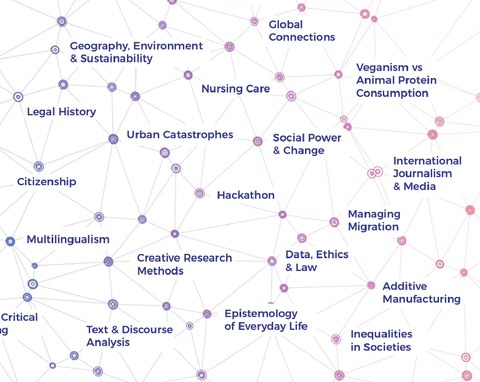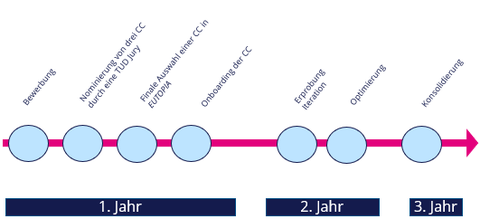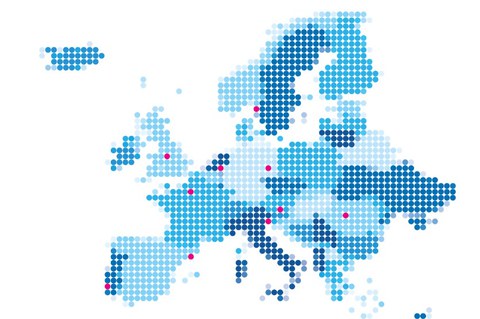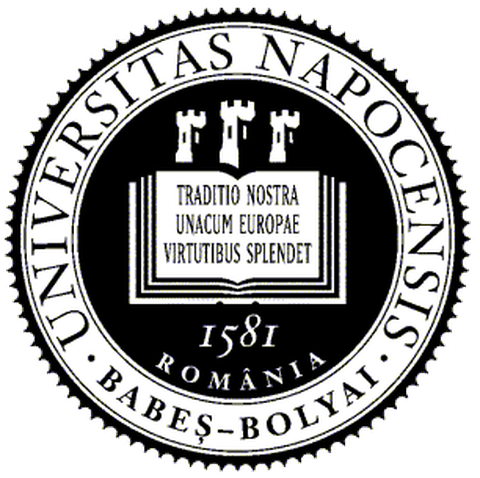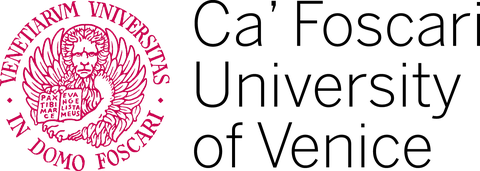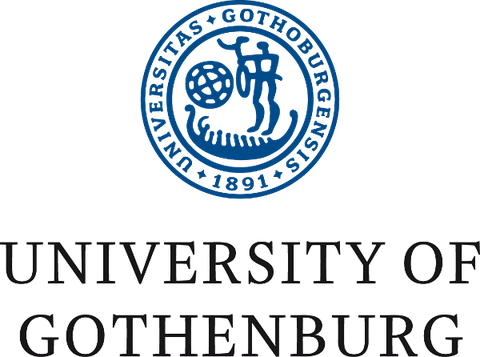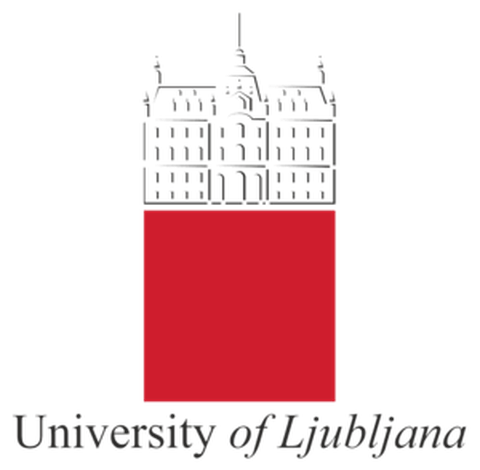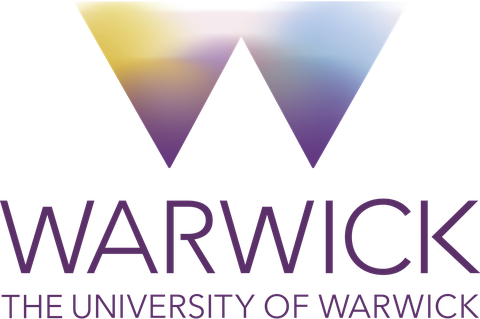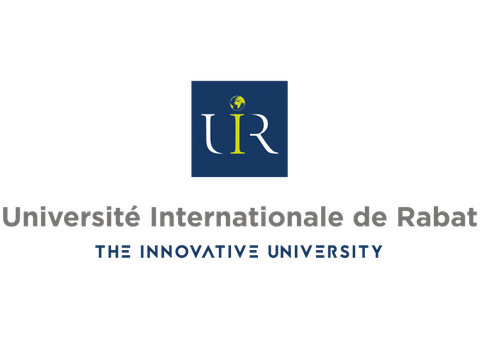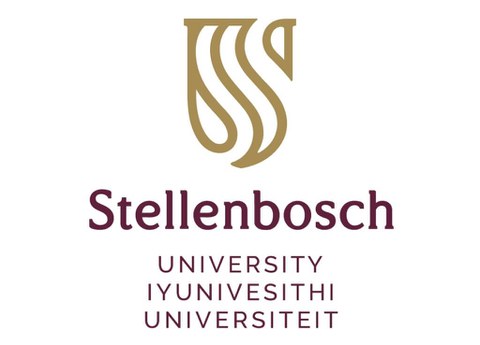Connected Community
In order to strengthen the togetherness within the EUTOPIA alliance and to strengthen the three
main areas of academic life - learning, teaching and research - more closely interlinked, "Connected Communities" (CC) were created. These CCs enable university partners from at least three universities in the EUTOPIA network to work together over a period of three years to build a cross-campus thematic network.
These communities form coherent thematic networks in which teachers, researchers and students are active together and support the EUTOPIA Alliance's vision of openness. Their objectives are divided into three main areas:
- Linking teaching and research: collaboration in the CCs creates innovative educational opportunities and advances current research.
- Promoting internationalization : The CCs provide a platform for the international exchange of ideas, knowledge and experience.
- Strengthening the community through inclusion: By bringing together teachers, researchers and students from different universities within the EUTOPIA network.
Support service
| Timeframe | 3 years | |
| Call for proposals | annually - next call in November 2024 - January 2025 | |
| budget | 10.000 € | |
| Support for | Local Facilator:inside |
Lifeline of a connected community
Added value and output
- Practical application of knowledge and skills.
- Diverse perspectives and innovative insights.
- Interdisciplinary collaboration for complex solutions.
- Network building across locations.
- Enhanced learning environment and access to resources.
- Personal and professional development in a globalized world.
- Insights into different cultures and ways of thinking.
Connected Communties
Round 1 (2023/2024)
|
New Technologies for Social Inclusion |
||
| Lead | Prof. Dr. Ercan Altinsoy (TUD) | |
| Partners | Cergy University (CY), Vrije Universiteit Brussel (VUB), University of Gothenburg (UG), TUD Dresden University of Technology ( (TUD) | |
| Keywords | Quality of life | Special needs | Innovative technologies | AR/VR | Robotics | Haptic, acoustic and visual interfaces | Assistance systems | Participation | Independence | AI | |
In addition to this participation, employees of the TUD Dresden University of Technology (TUD) are also involved as partners in other Connected Communities:
| Partner:innen | Quantum Technologies Initiative| Lead CY | Prof. Roderich Moessner (TUD) | |
| Keyword | Quantum Technology Program |
| Partners | Environmental Humanities, | LEAD UNIVE | Jun.-Prof. Moritz Ingwersen and Prof.in Orit Halpern (TUD) | |
| Keyword | Promotion of environmental awareness |
Round 2 (2024/2025)
| Agile in Biomechanics | ||
| Lead | Dr. Benjamin Kruppke (TUD) | Prof. Hans-Peter Wiesmann (TUD) | |
| Partners | University Hospitals Coventry & Warwickshire (UW), University of Warwick (UW), Babes-Bolyai University (UBB), Vrije Universiteit Brussel (VUB) | |
| Keywords | Agile project management | Scrum | Biomechanics | Practical projects | Challenges | State-of-the-art technologies | Interdisciplinary collaboration | |
| Partners | Sustainable Well-being for People & Planet/Caring communities | Lead NOVA | Prof. BärbelFürstenau and Dr. IaninaScheuch (TUD) | |
| Keywords | personal well-being| planetary sustainability |
| Partners | Bioimage Analyses | LEAD UPF | Prof. Ivo Sbalzarini (TUD) | |
| Keywords | Bioimaging | Deep Learning | Biomedical Challenges | Informatics Methods | Image Analysis | Citizen Science | Biomedical Advances |
|
Partners:inside |
Digitization for hydro-climatic risk reduction | LEAD VUB | Dr. Catalin Stefan (TUD) |
|
|
Keywords |
Hydro-climatic risks | Research mitigation | Education integration |
Connected Communities | FAQs
A Connected Community (CC) Lead is responsible for leading and coordinating a thematic community within a network such as the EUTOPIA Alliance. The tasks include:
- Strategic planning: defining and implementing the goals of the community.
- Coordination: Promoting cooperation and networking between members and external partners.
- Project management: Monitoring and evaluation of ongoing projects.
- Communication: Main point of contact for all questions and regular information for members.
- Resource management: Managing financial resources, staff and technical support.
The Lead ensures that the community works effectively and makes a significant contribution to the Alliance's objectives.
The partners of a Connected Community work together to share knowledge and resources, develop joint projects and advance the goals of the community.
A Local Facilitator is a person within one of the partner universities of the EUTOPIA Alliance who is responsible for supporting and promoting cooperation and coordination between their own institution, the other members of the Alliance and the central office in Brussels.
- Organization, promotion and networking of CC projects.
- Advice and customized solutions for scientists.
- Identification of potential CC projects and support for a smooth process.
- Event organization, coordination with EUTOPIA MORE universities and public relations.
- Integration of interdisciplinary research into teaching and linking with strategic developments.
- Evaluation and continuous quality assurance of CC.
-
Virtual exhibitions:
- Students create and present digital exhibits on interdisciplinary topics.
-
Educational podcasts:
- Production and discussion of podcasts on current academic and social issues.
-
Gamified learning:
- Use of game elements in non-game contexts to teach complex content in interactive scenarios.
-
Hackathons:
- Intensive, collaborative events where students work in interdisciplinary teams to develop innovative solutions to real-world challenges.
-
Virtual reality (VR) classes:
- Use of VR technology for immersive learning environments and hands-on simulations.
-
Interactive webinars:
- Live online sessions with experts in which students can actively participate, ask questions and discuss in breakout rooms.
-
Co-Creative PhD Training:
-
Innovative program to foster creative research approaches and professional skills in a collaborative, interdisciplinary environment.
-
-
International Workshop:
-
A global gathering of expert and early career researchers to share the latest developments and research findings.
-
-
Conference:
-
An exchange platform for the presentation and discussion of current scientific work that promotes interdisciplinary dialog and cooperation.
-
Global challenges are complex problems such as climate change, social inequality and pandemics that affect the entire world and require cooperation across borders. For EUTOPIA, it is crucial to jointly develop solutions to these problems. Through close cooperation between the partner universities in teaching and research, the alliance can help to tackle global challenges effectively.
These universities are members of the EUTOPIA Alliance:
Members
The Babeș-Bolyai University (UBB) of Cluj-Napoca, Romania, is the largest and one of the oldest universities in the country with an academic community of about 50.000 people. Counting almost 45.000 students enrolled in undergraduate, graduate, PhD, and non-traditional academic programs, in 21 faculties and one department of teacher training. UBB is today a complex multicultural university, with three lines of study in Romanian/Hungarian/ German, offering academic programs in 17 different languages.
UBB’s main areas of study range from art/humanities, social sciences, life and natural sciences, mathematics/ computer sciences to engineering and technology. UBB is also the host of 24 cultural centers, foreign institutes, and libraries. Babeș-Bolyai is the only university in Romania to host such a diversity of cultures under its institutional umbrella, as proof of its multiculturality and engagement in the academic and local/regional communities.
The Vrije Universiteit Brussel (VUB) is an internationally oriented university in Brussels, the heart of Europe. By providing excellent research and education on a human scale, VUB wants to make an active and committed contribution to a better society. It is an “urban engaged university”, strongly anchored in Brussels and Europe and working according to the principles of free research.
VUB was founded in 1970 but originates from the French-speaking Université Libre de Bruxelles (ULB), founded in 1834 to be independent of church and state and a place where academic freedom would reign. Both universities still consider that mission paramount.
VUB offers its more than 19,000 students nearly 150 study programmes in Dutch and English, spread over eight faculties in life sciences, natural sciences, and human sciences. 23% of the student population is international, with 145 different nationalities. VUB delivers pioneering research in photonics, robotics, mobility, artificial intelligence, structural biology, diabetes, fertility and many more fields.
Originally established as Italy’s first business school in 1868, the Ca' Foscari University of Venice is a multidisciplinary institution offering a wide range of study programmes in economics and management, modern languages, the humanities, and sciences.
Ca’ Foscari favours and promotes applied research, scientific and cultural cooperation between the university, its departments, national, EU or international institutions, and the business market. Today, the university is also exploring new areas of research by focussing on climate change, digital and public humanities, environmental humanities, digital transformation, and social innovation and nanoscience.
CY Cergy Paris University is a diversity-driven, socially and internationally-oriented institution in the northwest of the Paris metropolitan region.
It is organised in an undergraduate college (CY Sup), 4 Graduate schools (CY Tech, CY Arts & Humanities, CY Education, CY Law & Political Science) and an associated graduate school, member of CY Alliance and CY Initiative, the ESSEC Business School. CY Cergy Paris University and ESSEC’s research potential ranks 180th in the ARWU, meaning that we are the 5th largest French university in economics and business. CY Initiative’s transverse strategy for knowledge and technology is called CY Transfer, and focuses on Business, Finance & Management - Heritage, Luxury & Arts - Risk, Security & Society. This ecosystem links training to research and welcomes international students, high-level academics, and researchers.
ICY Cergy Paris University means 25,000 students, 550 PhD students in 5 doctoral schools, 1,000 researchers within 24 laboratories including 10 Joint Research Units (UMR), all working in 220,000 square meters spread over 12 campuses.
The University of Gothenburg is a multidisciplinary university that dates back to 1891. We consist of 8 faculties (Education - Fine, Applied and Performing Arts - Humanities - Social Science - IT - School of Business, Economics and Law - Science - Sahlgrenska Academy) and 38 departments. It also has a large number of research centres of expertise that span across several academic disciplines. These disciplines serve as a meeting point for students, researchers, and representatives from the commercial, industrial, and public sectors.
The University of Gothenburg meets societal challenges with a wide range of knowledge. Strong research and appealing study programmes attract scientists and students from around the world. The University is environmentally certified and works actively for sustainable development. The University of Gothenburg’s vision is A University for the World and expresses the endeavour to be an international higher education institution that assumes responsibility for societal development while helping to build a sustainable world.
Around 49,000 students and 6,000 staff study and work at the University of Gothenburg, making it one of the largest universities in Northern Europe.
The University of Ljubljana is the oldest and largest higher education and scientific research institution in Slovenia. The University with its rich tradition was founded in 1919. It has approximately 40,000 undergraduate and postgraduate students and employs approximately 6,500 higher education teachers, researchers, assistants, and administrative staff in 23 faculties and 3 art academies.
The central building, all three academies, and some of the faculties are located in the centre, the others are located near the centre, except the Faculty of Maritime Studies and Transport, which is located by the sea, in Portorose. Some of the most recent and modern buildings were constructed on the outskirts of Ljubljana, giving the university and its students a ubiquitous presence in the city.
The University of Ljubljana is renowned for its quality social and natural sciences and technical study programmes, structured in accordance with the Bologna Declaration. The projects keep pace with the latest developments in the areas of arts, sciences, and technology at home and abroad. The University of Ljubljana is the central and largest educational institution in Slovenia and the largest research institution in Slovenia with 30% of all registered researchers (according to the data from the SICRIS database). The University of Ljubljana has close ties with Slovenian companies and foreign enterprises. Our partners include multinational corporations and the most successful Slovenian companies.
The NOVA University Lisbon was founded in 1973. Its main characteristics are the emphasis on sustainability, interdisciplinarity and innovation. Its areas of expertise range from Medicine to Economics, Engineering, Social Sciences, and Humanities.
Its motto is to be A global and civic university. Its mission is to serve society at local, regional and international levels, through the advancement and dissemination of knowledge and understanding between cultures, society, and people. It promotes an education with an international profile focused on the students and equipping them with rigorous knowledge, creativity, critical thinking, and a sense of citizenship and justice; a collaborative, responsible, and internationally relevant research, privileging interdisciplinary areas and including research oriented towards solving problems that affect society.
NOVA is committed at a national and international level, paying particular attention to countries where Portuguese is spoken. NOVA is organised in nine Schools (Science & Technology - Social Sciences & Humanities - NOVA School of Business & Economics - NOVA Medical School - NOVA School of Law - NOVA Institute of Hygiene & Tropical Medicine - NOVA Information Management School - António Xavier Institute of Chemical and Biological Technolog y).
The Pompeu Fabra University-Barcelona is a public international and research-intensive university. Founded in 1990, UPF aims to be recognised as a social agent, a leading university in terms of both teaching and scientific output that consistently strives to offer original and effective solutions to social needs. Its mission is to train, through a rigorous, innovative, and personalized educational model, people with solid scientific and cultural knowledge. UPF intends to be a differentiated ethical community that values plurality, autonomy, dynamism, commitment, equity, rigour —both from an academic point of view and from a human point of view—, and accountability.
UPF has over 12,369 students, who work in 3 campuses organised in 8 faculties (Economics & Business - Humanities - Experimental and Health Sciences - Political & Social Sciences - Communication - Law - Information & Communications Technologies - Translation & Language Sciences), 12 inter-university Research Centres and one doctoral school.
The University of Warwick is one of the UK’s leading universities, with an acknowledged reputation for excellence in research and teaching, for innovation, and for links with business and industry. Established in 1965, the University of Warwick has always strived to achieve more, so at just over 50 years old, it is already challenging other UK universities centuries older than it.
The University has 31 academic departments and over 50 research entres and institutes in three Faculties: Arts; Science, Engineering and Medicine; and Social Sciences.
The University of Warwick provides a tireless yet supportive environment in which students and academics can make an impact — the kind that changes lives, whether close to home or on a global scale.
Global Partners
Monash University is a public research university in Australia founded in 1961. It is the second oldest university in the state of Melbourne. The university has several campuses across different continents.
The International University of Rabat or UIR in Morocco is a semi-public university founded in 2010. UIR is the first Moroccan university to be created as part of a partnership with the Moroccan government in the field of higher education. This partnership allows it to work towards the achievement of its objectives of excellence, education, research, and contribution to the socio-economic development of the Kingdom and the African continent.
Stellenbosch University or SU is a public research university situated in Stellenbosch, South Africa. Stellenbosch is the oldest university in South Africa and in Sub-Saharan Africa which received full university status in 1918. Stellenbosch University was the first African university to sign the Berlin Declaration on Open Access to Knowledge in the Sciences and Humanities.
Kyungpook National University or KNU is a South Korean national university founded in 1946. Kyungpook National University has four campuses in the Gyeongbuk province. The main campus, which houses the major engineering and science schools is located in the heart of Daegu city in the Buk-gu area.
Founded on a bold vision two decades ago, Arizona State University has successfully embarked on a trajectory to become a comprehensive knowledge enterprise dedicated to excellence, broad access to quality education, and meaningful societal impact. ASU exemplifies a new prototype for the American public research university, fostering a culture of innovation and inclusion that draws pioneering researchers to its faculty and attracts highly qualified students from across the globe. Today, ASU continues to expand academic and entrepreneurial opportunities, catering to learners at all stages of life. ASU is number one in the US for Innovation, and number one in the US and top 10 in the world for global impact in research, outreach, and stewardship.
Founded in 1948, Universidad de Los Andes is an autonomous, independent, and innovative institution dedicated to pluralism, tolerance, and the respect of ideas. It is Colombia's first private, secular, and politically independent higher education institution. The university aims to provide students with a critical and ethical education, instilling a strong sense of social and civic responsibility. Universidad de Los Andes has been a trailblazer in Colombian higher education, aiming to educate and contribute to developing a new nation. The institution's commitment to excellence, interdisciplinary education, and flexible learning environments has made it a model for other Colombian universities.

